- Nos actionsEn apprendre plus sur nos projets passés et en cours en faveur de l’empowerment des femmes.
- Nos programmes
- Agir avec nous
- Événements
- Blog
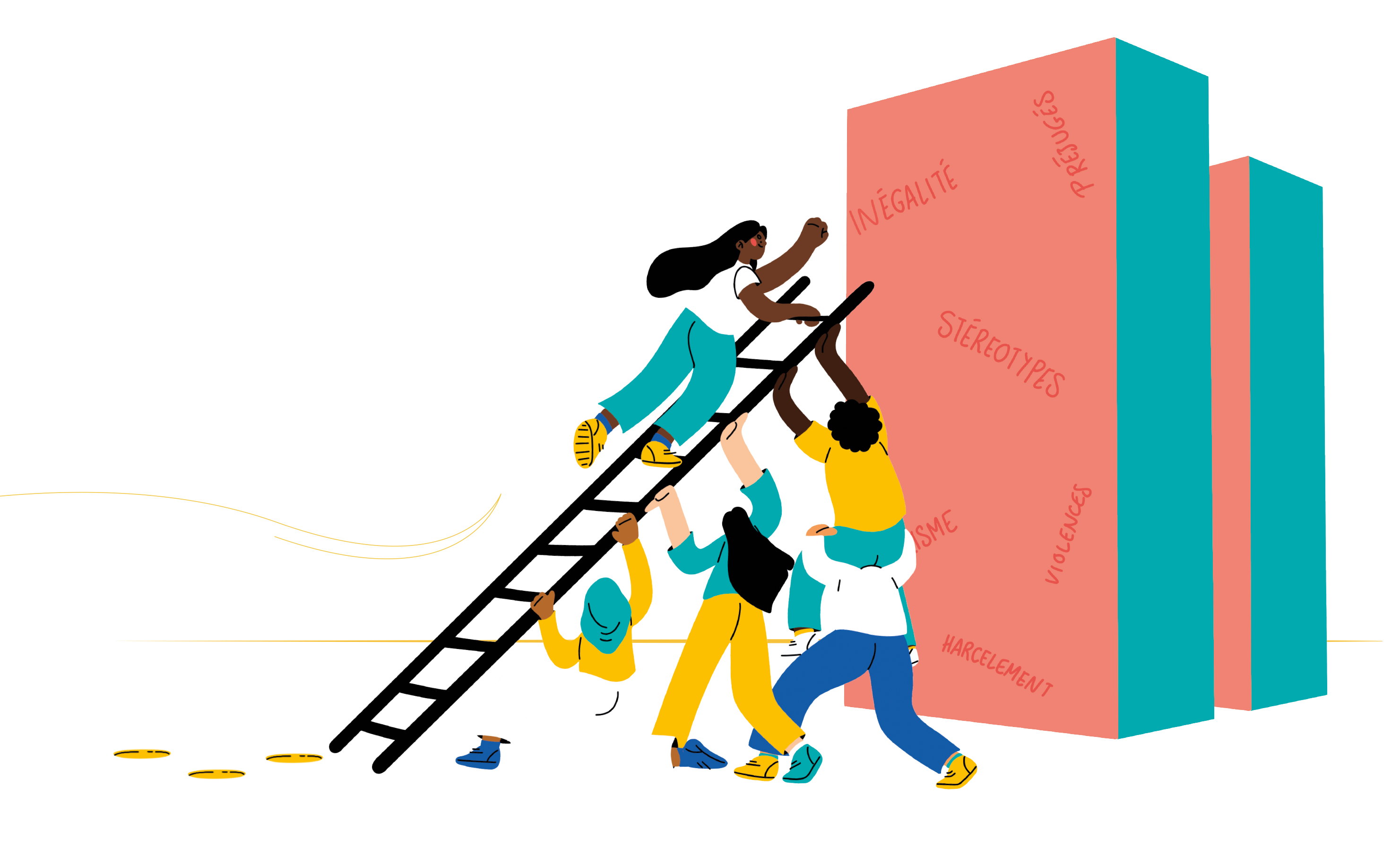
Empow’Her was born from the wish to understand and explore the relationship between empowerment and women’s entrepreneurial approach. In all, we perceive that female business owners across the globe are not given the recognition and appraisal they deserve.
Exposed to the difficulties faced by women day-to-day, our initial strategy was to construct tools and solutions to meet their needs.. On top of this technical knowledge,we quickly identified the importance of services offering support and guidance. That is why, inspired by women’s needs, we built our first support programmes and supported women wishing to pursue entrepreneurship, both on an individual and collective level.
In 2015, we transitioned into a professional organization and implemented our operational model, while still upholding our exploratory approach and experimental ethos. Recognizing the importance of considering the context in which women operate, and with the aim of incorporating activities that benefit the surrounding communities, we launched awareness-raising campaigns targeted at diverse audiences.
We organized events to amplify the voices often unheard, held meetings based on collective intelligence, produced ressources and studies, and created frameworks for partnering. While continuing to support the women we guide, we realized that empowerment requires a framework for action that goes beyond the individual level.
In this opening section, we welcome you to join us on the entrepreneurial journey of these women. You’ll witness the obstacles they face and explore the tools and solutions available to help them overcome these challenges.
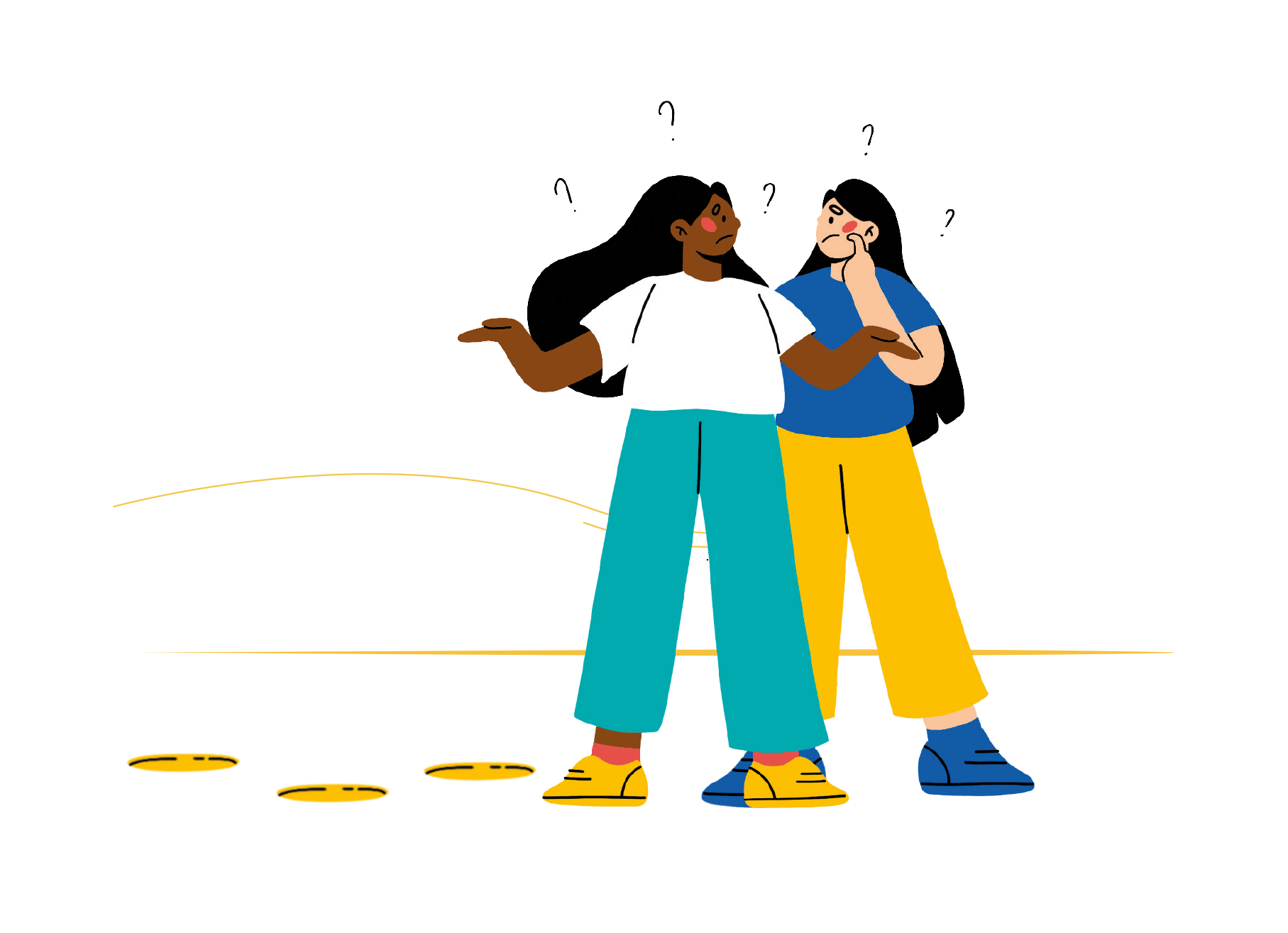
THE PROBLEM WE ENCOUNTER
As highlighted by the 2021 Oxfam report, women are only
entitled to three-quarters of the economic rights that men
have. Consequently, they are less protected by laws and
institutions regarding pay, leave, maternity, entrepreneurship,
retirement, and assets. This situation is prevalent across all
continents. For instance, in Europe, women earn 13% less
than men. In Africa, women are more represented than men
in the informal sector, encounter more difficulties gaining
wage employment, and face greater income inequalities or
disparities in accessing land and financing.
The weight of tradition and deeply ingrained socio-cultural
biases in patriarchal societies also has a significant impact
on women’s wages worldwide. They are still not regarded
as equal to men, do not have access to the same economic
opportunities, and are frequently deprived of the rewards of
their hard work.
This limited access to income and/or resources significantly impacts women’s economic prospects, obstructs their entrepreneurial efforts, and results in states of extreme instability and dependence. In some cases, having an economic activity can even worsen this instability, as taking on unpaid work perpetuates financial dependence. The present economic system, which has posed difficulties for women’s integration, creates new types of discrimination and perpetuates, even exacerbates gender inequalities. In the words of Gisèle Halimi in 1992, «all other forms of dependence for women arise from economic dependence.»
How to resolve it
In an environment where women face barriers to accessing
the labor market and earning an income, entrepreneurship
offers a powerful route to self-empowerment. In the presence
of structural inequalities, entrepreneurship provides an
opportunity to escape dependency and take control of
personal choices and development.
According to the OECD, women often engage in
entrepreneurship out of necessity, as they have fewer
alternatives for accessing the labor market than men. This
may explain why there is a relatively high proportion of female
entrepreneurs in developing countries with more difficult
economic and social conditions. That is why we provide
entrepreneurs with methods and advice on how to establish
sustainable business activities. To take them beyond survival
entrepreneurship, we work with them to explore alternative
paths. We are here to encourage them to achieve their
ambitious projects, help them identify opportunities and
discover inspiring ways to generate sustainable income and
become part of supportive networks.
To fulfill our commitment, we emphasize specific
interventions for women, especially in suburban, peri-urban
and rural areas. Our objective is not limited to urban centers,
but to reach women in all places.
Men globally hold 50% more wealth than women, according
to a report from Oxfam.
The Equality 2.0 programme, established in collaboration with Cargill and IFC, was created upon recognizing the disproportionate leadership position of men in managing the cocoa production chain, with 94% of the industry being maledominated, in spite of Côte d’Ivoire being the world’s largest cocoa producer. Although cocoa production is a crucial economic activity for the country, the lack of female presence in top-level management positions is evident. However, it must be noted that women contribute substantially, with an average of 40% of the production. Similar to many other sectors, women’s participation in informal activities within this sector often results in them not receiving fair economic value for their work.
They may work on plots owned by their husbands without receiving any payment for their contributions. Their efforts remain socially unaccepted and unrecognized. Our aim is to empower women in this context so that they can capture and retain their own incomes. We improve the entrepreneurial capacity of individuals to establish and grow their own businesses in cocoa production or other sectors. Cooperatives are encouraged to reconsider their operational models which exclude women from income distribution. In addition, women’s most immediate needs are addressed through financial aid or material resources, while they receive support for the initial steps of their activities.
Finally, alongside the programme, women’s producer groups have been formed to organize other agricultural endeavors that may aid in income generation and achieving autonomy.
Across all locations, 2250 women
participated in training activities.
of first-year participants reported
having increased their income.
In addition to coffee production, we also supported Biranesh Dumo and Ethiopian women to engage in beekeeping, with the aim of making this sector more inclusive and ensuring sustainable and decent income for women. Until now, this highly profitable activity had been primarily dominated by men.
“Prior to participation in the Women’s Economic Empowerment Programme, I engaged in small-scale beekeeping activities using local equipment and lacked the necessary skills and knowledge to enhance productivity. Firstly, the incubation phase of the programme boosted my self-confidence and leadership which empowered me to improve my communication and to think more ambitiously. With the help of this programme, I was also able to create a framework for action and a financial plan to scale up my business. The grant will enable me to obtain up-to-date bee hives and implement the newfound knowledge. In my community, I disseminate my insights through a savings group, with a focus on gender stereotypes and leadership concepts.”
Biranesh Dumo, Beekeeper
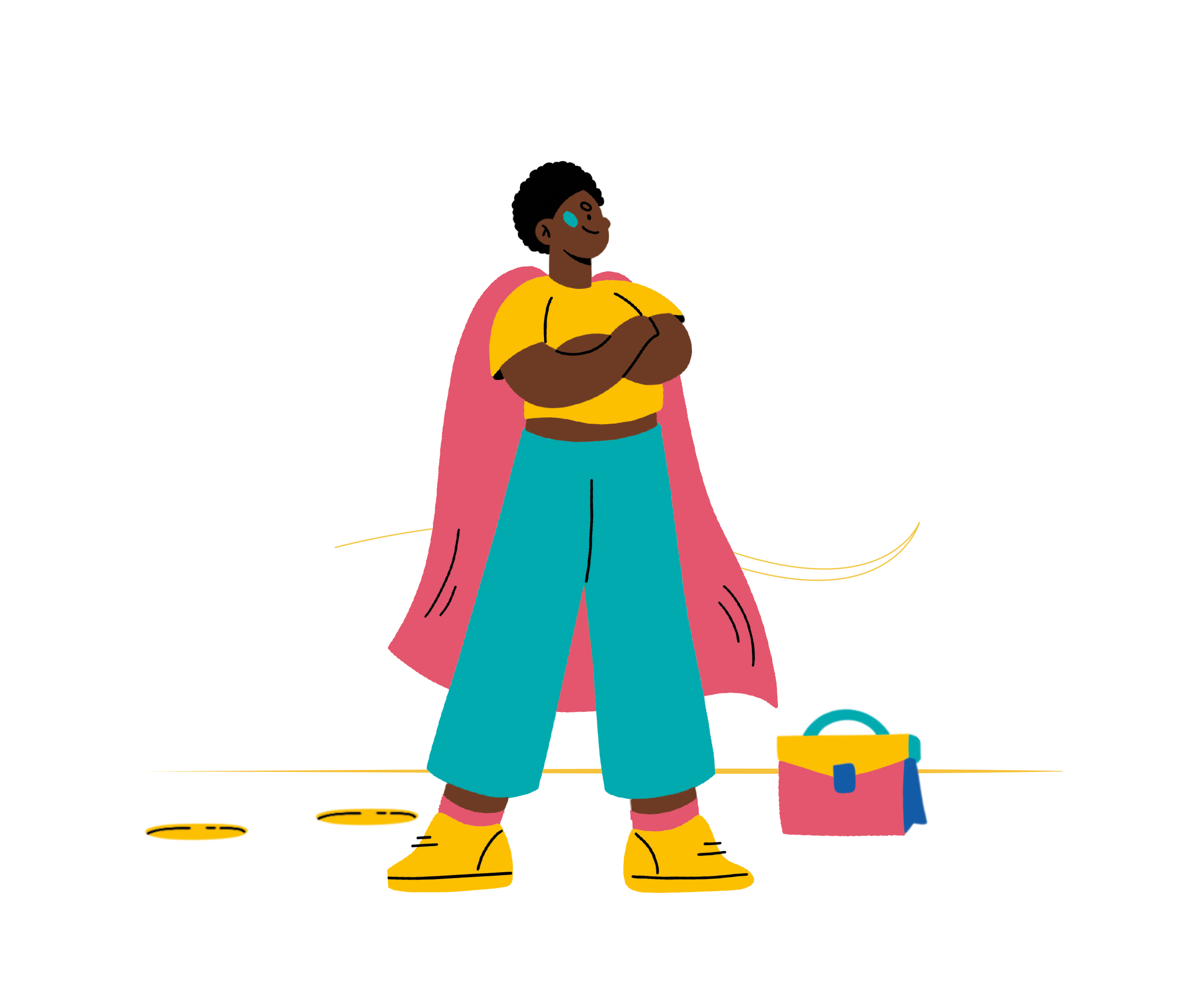
The problem we encounter
Throughout the world, self-employment and entrepreneurship are the most common forms of employment. This is even more true in many low-income countries, where wage employment is the exception. However, according to the OECD, women remain underrepresented in entrepreneurship. Their potential tends to remain ‘dormant’, not fully realized. While global data on entrepreneurship is sometimes difficult to compile, it’s known that in Europe women start fewer businesses than men and are less likely to be self-employed. Globally, only 34% of small, medium and large enterprises have a woman at the helm. In France, only 31% of new businesses created each year are started by women, even though 82% of women have considered entrepreneurship.
Apart from legal or regulatory barriers (in many countries women are still not allowed to sign contracts), women often mention feelings of inadequacy or lack of confidence. These doubts often stem from experiences of discrimination and prevent them from taking action. Discouraged by their social and cultural environment, their entrepreneurial experience may be less fulfilling, their lack of confidence may affect their level of ambition, and some may even abandon their projects.
How to resolve it
A key aspect of our approach is to build women’s confidence, making it easier for them to take the first step towards entrepreneurship. In addition to technical guidance, moral support to overcome the challenges of a somewhat lonely entrepreneurial journey is crucial. This aspect is particularly important for people in more precarious social and economic circumstances (geographical isolation, unemployment or inactivity, migration experience, etc.).
To achieve this, we implement different solutions during the support period: individual coaching with professionals, peer «mirror» sessions, collective workshops inspired by collective intelligence methodologies, and more. We prioritize creating spaces for listening, taking into account women’s experiences in their entrepreneurial journey and helping them to identify potential barriers that limit their potential.
Women entrepreneurs are 70% more likely to reach the 5-year mark with the right support.
We emphasize the creation of long-term programmes that allow women to progressively find resources to advance both their business and their personal growth. Many participants leave our programmes feeling that they have overcome fears or limiting beliefs and are better equipped to face what comes next.
The Women Dare programme aims to support women in Île-de-France who want to start their own business. It offers a tailor-made support path designed to be flexible and comprehensive, with open enrolment throughout the year. This «à la carte» programme runs for 12 months, allowing participants to engage while taking into account their personal or family constraints. Beneficiaries have the freedom to design their journey and training sessions. The diversity and complementarity of the approaches provide comprehensive support.
Throughout the year, participants undergo a two-day immersion bootcamp, receive personalized individual coaching and have the opportunity to meet in groups to develop their projects. The methodology emphasizes the collective intelligence of different cohorts and the social impact of the projects. Each year, 200 women in Île-deFrance, 30% of whom live in priority neighborhoods, will benefit from this programme.

Vi Grad is 39 years old and the mother of two young boys. After 15 years in purchasing consulting, she ventured into impact entrepreneurship after participating in the Women Dare programme. She founded Pommy, a brand of anti-waste fruit purees made from surplus produce. Based in Melun, she produces the fruit purees herself!
women directly supported in their
entrepreneurial journey
of the women in
the programme have
a job,
compared with 38% at the
beginning.
of them are in the process of
starting
their own business.
Through «Girl Power», Empow’Her has developed a programme specifically targeted at vulnerable young girls from disadvantaged neighborhoods in Côte d’Ivoire. These girls, aged between 15 and 24, face a difficult life: they are often out of school, unemployed and sometimes single mothers. We worked with these 300 young girls for two and a half years, addressing issues such as personal development, emotional management, self-esteem, public speaking, defining their career goals, problem-solving and community spirit. Our mentoring methods aimed to adapt to their needs. For example, we developed illustrated training materials to improve understanding for illiterate girls. In addition, a 6-month incubation programme supported around one hundred of them on their entrepreneurial journey. Twentyfive of their projects received financial support from our partners, UNICEF and OSCN, the Ivorian public service organization. Through entrepreneurship, Empow’Her contributes to their social and economic reintegration.
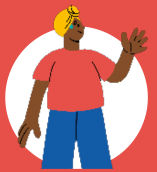
A perfect self-learner, Massangbê has become a role model in her community. At the age of 19, she opened her own boutique where she sells women’s clothing and accessories. «I used to be very nervous, I hesitated a lot and I couldn’t speak in front of people because I thought they would make fun of me because of my bad French. Now I’m no longer ashamed to speak in front of people.»
Girl Power on WhatsApp! !
The Empow’Her educational team took the initiative of converting the training modules into audio versions and making them accessible to young girls via WhatsApp. Background music, voices and cover images have been specifically selected according to their local environment. This approach enables us to adapt to technical constraints (internet access), as well as educational challenges (low literacy rate). Thanks to this innovation, participants found it easier to understand the modules and complete their exercises.
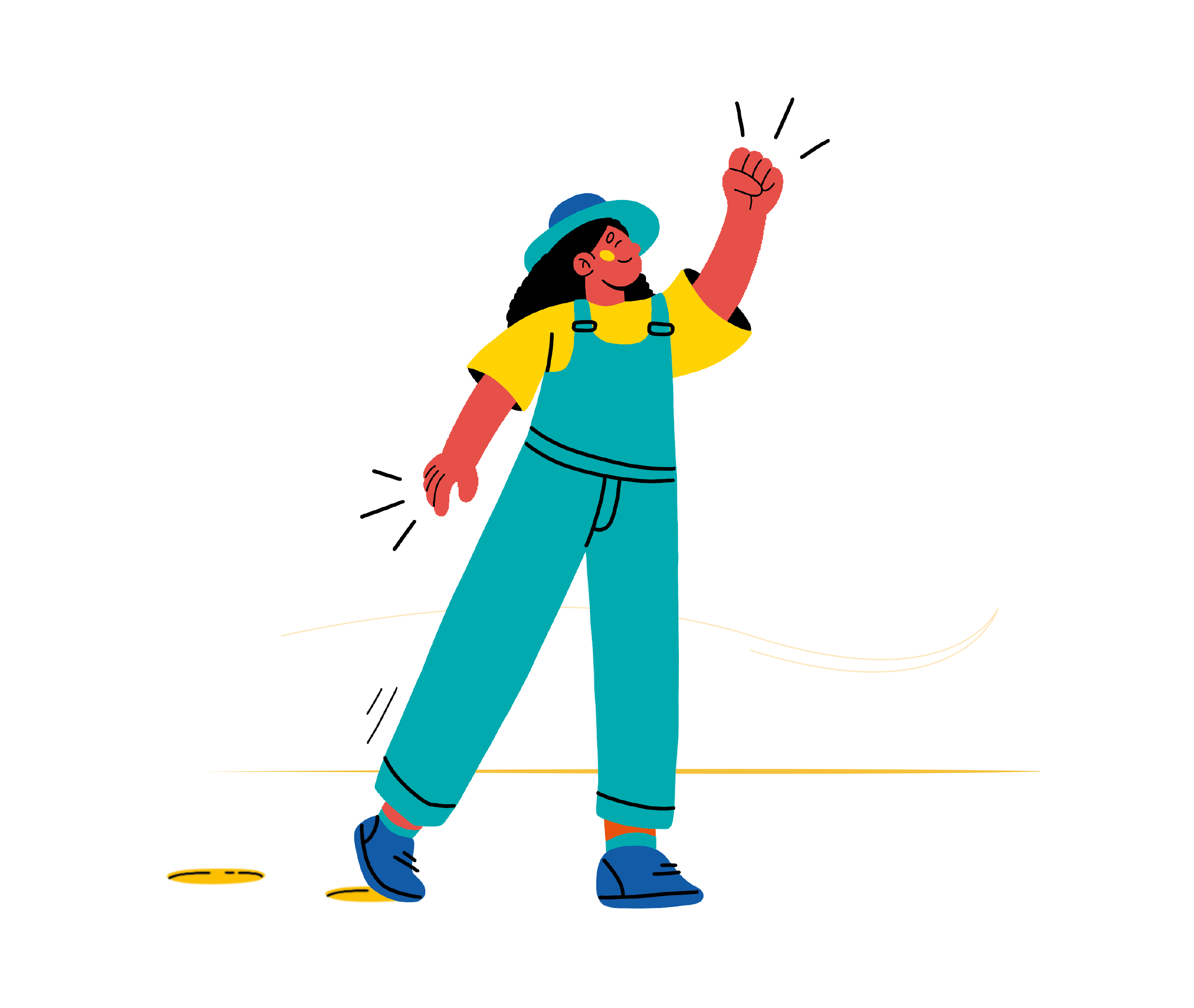
The problem we encounter
Throughout the world, women spend at least twoand-a-half-times more time than men on unpaid work, including daily domestic tasks. From preparing meals to cleaning, collecting water and firewood, and caring for children and the elderly, this work is rarely recognised as such, yet its impact is substantial.
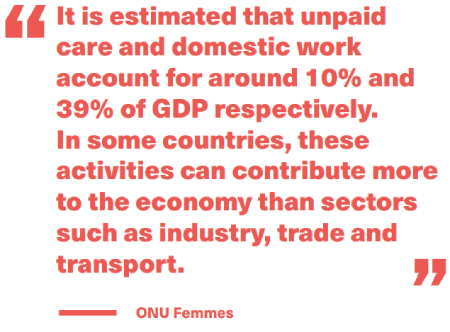
These figures are indicative of a wider context. For example, the practice of child marriage, both early and forced, is still widespread in impoverished rural areas. Every year, 15 million young girls are subjected to this practice, five times more than boys. It leads to them to drop out of school, increases teenage pregnancy and exposes them to violence. In such circumstances, it is difficult to break out of the confined domestic role they have been assigned to. It's even harder to embark on an entrepreneurial project with a sense of calm and autonomy. These socio-cultural barriers therefore hamper their agency. Working, being an entrepreneur and having an income do not necessarily equate to autonomy.
How to resolve it
For Empow’Her, it would be a mistake to ignore this context.
The socio-economic barriers women face underline the
need for a comprehensive approach to supporting women
entrepreneurs. A key aspect of this approach is to raise
awareness of gender issues and discrimination among
women and their communities. This includes sharing
and highlighting women’s experiences, sensitizing men’s
groups and developing practical solutions to reduce unpaid
workloads.
Empow’Her strives to create an enabling environment
that allows women to focus on growing their businesses.
Celebrating the «power of ordinary women»is an important
goal -in the words of ecofeminist activist Vandana Shiva
- freeing them from certain societal constraints and
enabling them to realize their full potential. These learning
experiences are often transformative for the participants.
They discover new resources within themselves, strengthen
their convictions and take control of their journey.
For the past three years, Empow’Her has been running the Perenia project, a programme that trains women’s groups in sustainable agriculture in three regions of Niger. The participants are mostly women over the age of 25, often without formal education and married. While most are involved in vegetable gardening or related activities (such as vegetable processing or trading), two-thirds have never had access to their own land. These beneficiaries are at the intersection of several autonomy-related challenges and are far from entrepreneurship. The Perenia programme therefore focuses on capacity building.
It works to instill feminist and ecological values while providing practical tools for working the land and starting a business. In addition, the group-based approach emphasises the collective aspect of individual development. In this way, Empow’Her encourages the emergence of a team spirit among the women, who sometimes continue to work together beyond the programme. United, these new communities value solidarity and mutual support, contributing to the autonomy of each member.
women supported towards
sustainable agriculture
agricultural plots have been
serviced to facilitate access
to land and water
of individuals claim to have improved
their economic situation or
that of
their business.
have become aware of gender
inequality and the role of sisterhood.
37,6kg of seeds were distributed to beneficiaries.
6 vegetable production groups and 4 vegetable processing
groups, each consisting of 25 women, formed a partnership
after the PERENIA programme. The processors buy and
process moringa, cabbage and onions produced by the
gardening groups.
A total of 250 women have come together on their own
initiative and are working synergistically.
«Before, we didn’t see the benefit of keeping records to better structure and control our various expenses, but now we have realized how important it is for our activities, especially in terms of traceability. This training in financial management for a group and the use of management tools will be very useful for us. It’s very important and it’s a great opportunity for us to have received this support free of charge».
Ramatou Harouna,
President of a group in Niamey
Crises, especially when they are multiple and successive,
often result in setbacks for gender equality. In recent years,
the pandemic, the war in Ukraine and climate change have
all contributed to increasing gender inequalities. Since
the beginning of the war in Ukraine, Portugal has received
more than 36,000 refugees, two-thirds of whom are
women. These women face specific challenges related to
language barriers, isolation and administrative procedures.
The aim of our support is to promote the integration of
Ukrainian refugee women by strengthening their skills,
providing training and increasing their employability in the hospitality industry. The programme also aims to provide the women with tools, resources and networking opportunities to develop their projects. Support is provided to build their confidence and leadership skills, and entrepreneurial training is offered, including assistance in the ideation phase and in defining the business model and strategy. Technical training is also provided by a school specializing in the hospitality industry, so that at the end of the programme, the women can choose between a salaried career or entrepreneurship.
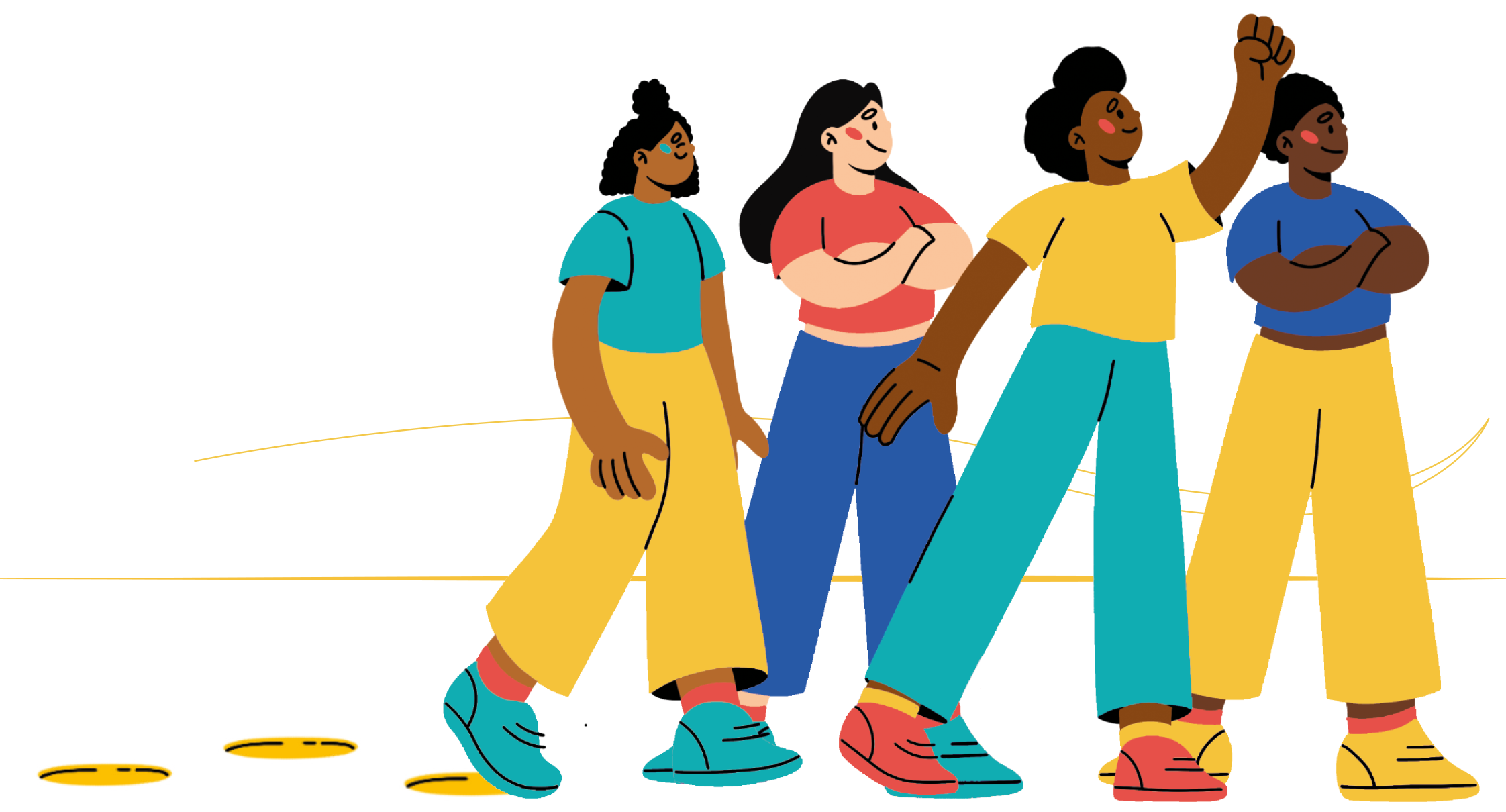
The problem we encounter
Sexist stereotypes still persist in the entrepreneurial sector,
with men being overrepresented in media coverage and the
prevailing image revolving around competition and relentless
performance. These barriers prevent women from envisioning
themselves as entrepreneurs. As a direct consequence, only
30% of entrepreneurs in France are women according to INSEE
figures. This, in turn, contributes to the underrepresentation
of female entrepreneurs in a vicious cycle
However, these barriers could be overcome if women
entrepreneurs gain real access to, can lean on, and are
supported by existing networks and ecosystems. For this to
happen, they need to find themselves in these networks and
be better represented within them.s.
Furthermore, it’s essential that women entrepreneurs have
the ability to shape spaces and networks that reflect their
own identities. According to the OECD, networks of women
entrepreneurs serve as significant sources of information
about successful entrepreneurial ventures, and they can
enhance members’ self-confidence. The decision to pursue
a career, especially as an entrepreneur, relies on the ability to
envision oneself in that role.
But without new realities, fresh values, exemplified by role models and widely disseminated, women will continue to struggle to see themselves as entrepreneurs, and the situation won’t change.
How to resolve it
Empow’Her firmly believes in the power of collective action.
For us, sharing and sisterhood are sources of inexhaustible
energy and empowerment, constituting resolutely
feminist modes of operation. We encourage women to
join communities where they can share their challenges,
insights, and test their ideas. Being part of a community of
peers provides the opportunity to learn from each other and
collectively gain confidence and strength.
Consequently, we encourage and foster experiences of
connection and mutual support so that both current and
future entrepreneurs feel inspired, supported, and guided.
This allows them to shape spaces and networks that resonate
with their own identities. To achieve this, we haveve created
physical and digital spaces that highlight a different image of
entrepreneurs and entrepreneurship, serving as entry points
for those who haven’t found them elsewhere. Additionally,
we support committed entrepreneurs who promote impactdriven entrepreneurship.
Furthermore, we connect these entrepreneurs with the right
resources and stakeholders, facilitating relationships and
granting access to crucial support for their development.
Mentors, coaches, investment funds, support structures,
networks of entrepreneurs, institutions—all must be
involved, both at the local and international levels.
Empow’Her is dedicated to fostering synergies among women who have ideas or projects that aim to make a positive impact on the world, no matter what the scale. These synergies take place in collective moments where women meet, exchange ideas, create and rethink together the world of tomorrow. The concept of place and space plays a crucial role in this synergy strategy, which is why Empow’Her has created Sist’Her third places to accelerate women’s access to more opportunities. These spaces welcome our teams, the women we support and inspiring events for the community.
2
impact-driven
entrepreneurs
supported:
Abidjan et
Paris
Sist'Her Paris:
225m2 of space for women
from diverse backgrounds
23 events
559 participants in 2023
partnered with the Kering Foundation
Beginning in 2019, Empow’Her partnered with the Kering Foundation to support social entrepreneurs committed to combating gender-based violence (GBV). Through this partnership, Kering Foundation awardees received collective support to explore different strategies to develop their impact projects and businesses. The aim was to scale up sustainable economic models and offer solutions across sectors and countries to maximize their impact. This alliance also facilitated the exchange of best practices, valuable advice and essential resources, ultimately contributing to the safety and well-being of survivors.
14
impact entrepreneurs
are supported
To ensure that women driving change are heard, recognized and supported, Empow’Her has created Empow’Her Festivals - both physical and digital spaces that amplify the voices of those working to create a more inclusive and sustainable future. These festivals provide a platform for women to share their visions and contributions to entrepreneurship that challenge existing norms.
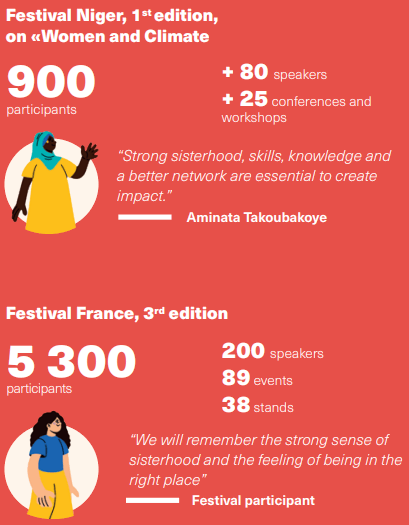
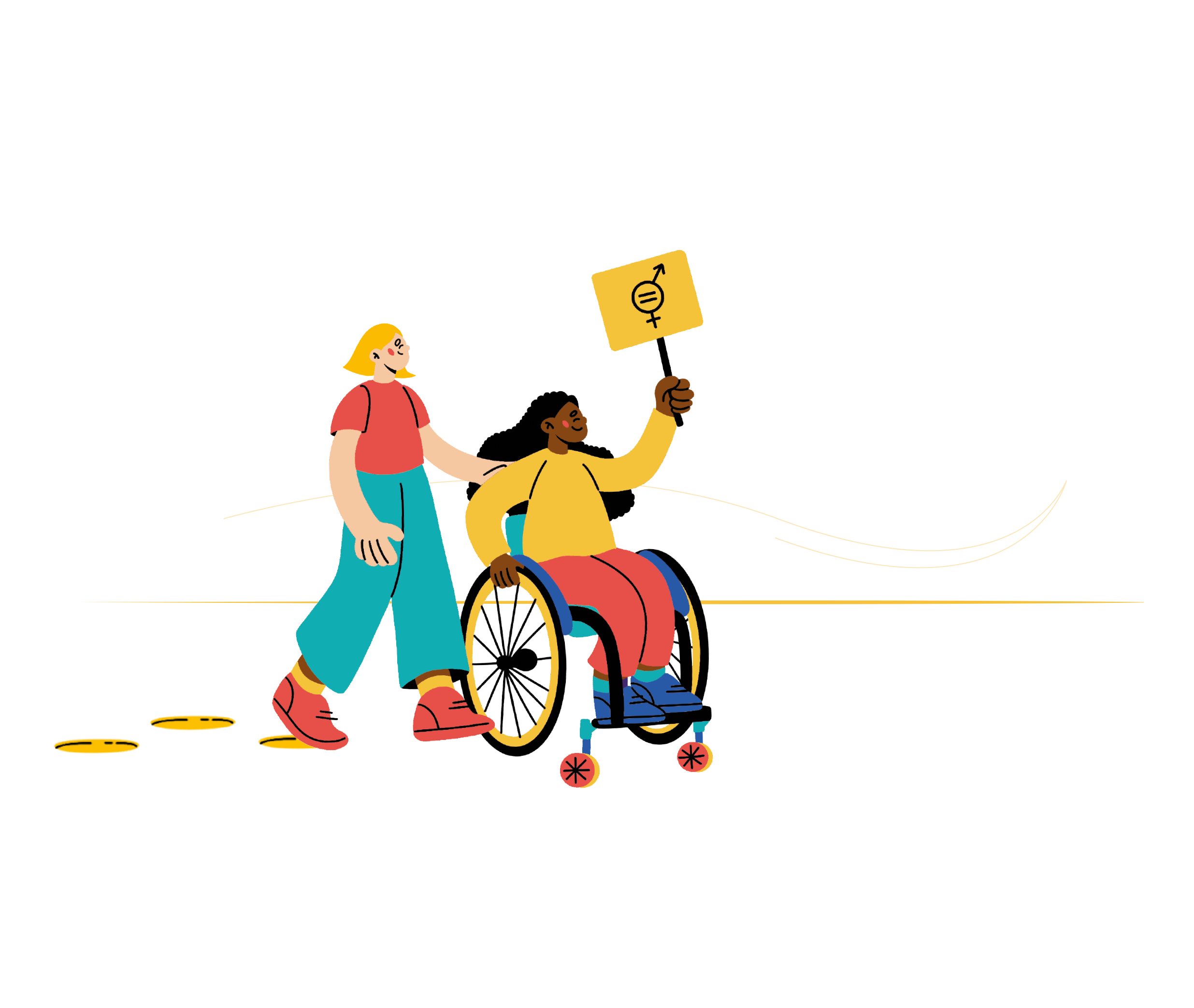
THE PROBLEM WE ENCOUNTER
Eliminating all forms of discrimination against women and
achieving gender equality are core values of the United
Nations. However, recent figures show a much bleaker reality
for women: according to Oxfam, nearly two-thirds of the
world’s illiterate adults are women, and 153 countries still
have discriminatory laws against them in economic matters.
These gender inequalities have a negative impact on the
lives of women entrepreneurs.
The economic and social
environment in which they operate is fraught with barriers,
discrimination and violence. According to one of our recent
studies, the main challenge that women entrepreneurs face
at the start of their projects is a lack of consideration, and
over 42.5% of them have experienced violence related to
their entrepreneurial activities. These barriers are deeply
entrenched in our societies.
They come from both public and
private institutions that are supposed to promote and ensure
equal access to resources and entrepreneurship. However,
they still act on the assumption that women are the only actors
in their empowerment efforts, without taking into account.
Women’s participation in
the labor market in 2022 is
expected to remain below
pre-pandemic levels in 169
countries and regions.
How to resolve it
Our approach is based on the recognition that unequal
access to economic resources and entrepreneurship is part
of a continuum of gender-based violence (GBV). Whether
institutional, economic, physical, psychological or other,
these forms of violence can limit women’s access to different
opportunities. In this context, Empow’Her initiated a reflection
on how to better address GBV within its entrepreneurship
support programmes.
As the patriarchal system is inherently systemic, raising
awareness and creating change among all actors within
this ecosystem has become a crucial condition to ensure
transformation across the sector. That’s why our support
programmes are committed to not confining women (and
men) to certain sectors or professions, or to imposing a
dominant entrepreneurial culture that discourages many
women from embarking on this journey.
We run several projects aimed at changing the context in which women entrepreneurs operate. We engage in pedagogical engineering to design new methods and content for support programmes that take gender into account and offer new ways of approaching entrepreneurship. We also support organizations to change their perspectives and attitudes by providing training on strategies and tools that address structural gender biases and inequalities. We raise awareness within communities to change mindsets and representations of women in the ecosystem, fostering a more equitable entrepreneurial culture. Gender equality is everyone’s business and together we can make a difference.

The FOWOSE project, run in partnership with Pulse, aims to
address the lack of inclusivity in entrepreneurship, particularly
social entrepreneurship, by directly influencing organizations
that support women. By helping these structures to be more
responsive to women’s needs and providing training to those
who support them on a daily basis, Empow’Her is building
a foundation for the future and increasing its impact on the
entrepreneurial ecosystem. Ultimately, all the entrepreneurs
supported by these structures will benefit from the work done.
In concrete terms, Empow’Her acts as a pedagogical partner,
producing tools, training content and support pathways to
enable ecosystem actors to better address gender biases
in their operations and the specific needs that women
entrepreneurs may face.
Three main axes will be highlighted:
· Training and equipping trainers with gender awareness
to deconstruct their own biases.
· Selection processes and the design of support pathways
to overcome selection bias and attract more women.
· Community engagement and the involvement of
entrepreneurs within these communities.
Through this support, the three partner organizations -
Women on Top (Greece), Reach for Change (Bulgaria) and
Synthesis (Cyprus) - will be sensitized to gender issues and
then disseminate these best practices to the entrepreneurs
they train and their partners.
This project is in line with our aim to change the attitudes
and perspectives of institutions so that they integrate a
broader view of women’s economic empowerment into their
programmes.
After conducting diagnostics to identify the priority needs of
support structures and gaining a better understanding of the
specific needs of women entrepreneurs in different contexts,
we developed a tailor-made toolkit and supported Enabel’s
teams to implement it in their different offices.
Building inclusive decision-making processes, designing
gender strategies throughout a programme, creating and
nurturing a supportive women’s community, and positively
influencing ecosystem actors - these are the challenges that
Enabel’s teams can now find advice and guidance on.
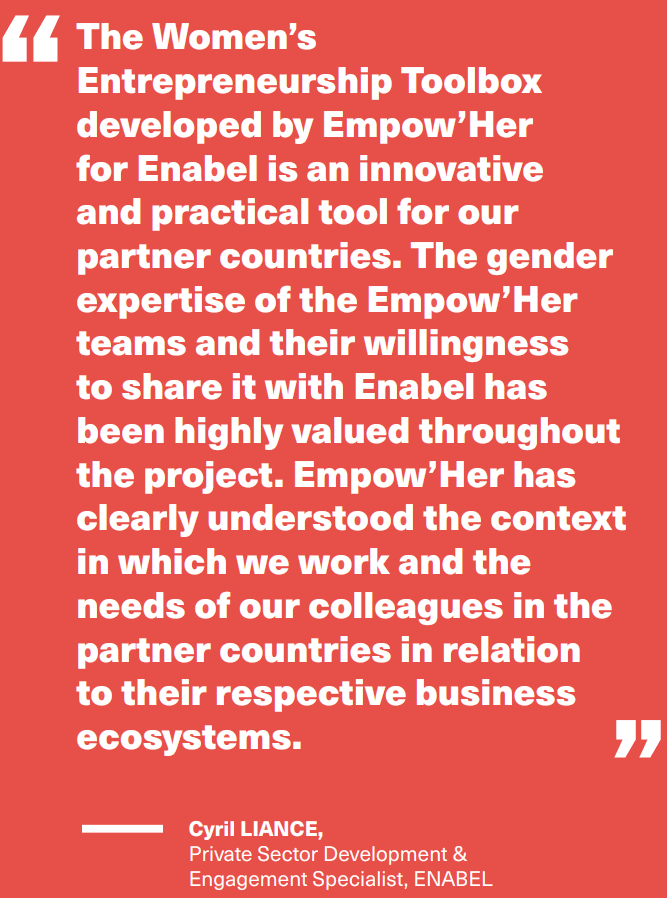
In 2022, we have significantly
accelerated our work and
raised important questions
about our organization,
our strategy, our partners
and our areas of intervention.
These reflections have led us to think deeply about our
activities in the coming years and the change we want to
achieve. What lessons can we draw from almost a decade
of experience? How can we maintain the strong cohesion
of our teams as we expand geographically? How can we
continue to grow while maintaining our impact? Who should
we work with and to what end? How can we remain agile and
innovative across our different areas of intervention?
The quest for meaningful impact is at the heart of all these concerns and underlines the deep commitment of our organization. Empow’Her, whose DNA is rooted in empowering women entrepreneurs, finds its purpose and methods of action by engaging in initiatives that can tangibly shift the balance for women. Every day we feel the need to do more and better. We have realized that all the obstacles women face in their entrepreneurial journey are interconnected. We have also seen that this issue goes beyond the individual and is part of a broader system.
To explore our activity report,
scroll from left to right.

Inscrivez-vous à notre newsletter
82 rue du Faubourg Saint-Martin
75010 Paris, France
M° : Strasbourg Saint-Denis
Suivez-nous
sur les réseaux ! :)
© Copyright 2024 – Empow’Her
Para descargar la guía, tendrá que rellenar este breve formulario. Este formulario nos permitirá evaluar el alcance de la guía y enviarle un cuestionario de satisfacción y testimonios. Si lo desea, también puede recibir información sobre otras oportunidades de proyectos de FON a través de Empow’Her.